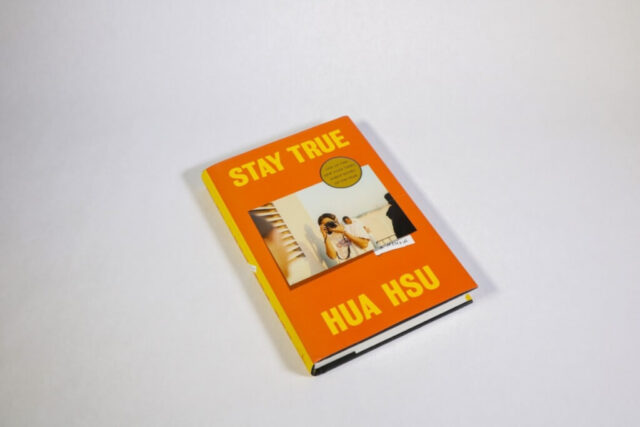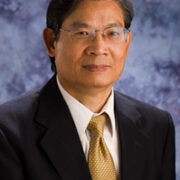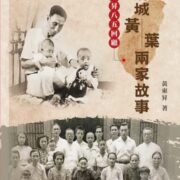台裔美籍作家徐華剖析成長歷程 自傳榮獲普立茲獎

台裔美籍作家徐華的作品「保持真實」榮獲「自傳文學獎」,他在這本回憶錄中描述自己於加州大學柏克萊分校的求學與成長歷程。圖為「保持真實」書影。(圖取自網頁pulitzer.org)
(中央社華盛頓11日綜合外電報導)美國哥倫比亞大學近日頒發2023年普立茲獎,台裔美籍作家徐華的作品「保持真實」榮獲「自傳文學獎」,他在這本回憶錄中描述自己於加州大學柏克萊分校的求學與成長歷程。
根據哥倫比亞大學(Columbia University)的公告,徐華(Hua Hsu)因為「傑出且真實的回憶錄自傳」而獲獎,並獲頒1萬5000美元獎金。
公告寫道,這本名為「保持真實」(Stay True,暫譯)的自傳堪稱「優雅且生動的成年記述,描寫有強烈情感和青春活力的友誼,也談到隨機暴力,這類暴力可以在剎那間永久改變個人敘事的預設邏輯。」
徐華出生於美國伊利諾州香檳-厄巴納市(Champaign-Urbana),在加州古柏迪諾(Cupertino)長大,是移居美國台籍父母的獨子。
在「保持真實」一書中,徐華分享他與父母一起選擇就讀加州大學柏克萊分校(University of California at Berkeley)的過程。
內文寫道,「柏克萊是間好學校…但我之所以非常想去那裡念書,是因為那裡有超大片的披薩及廉價的唱片,左翼書店藏在停車場內,還有怪咖在廣場高呼言論自由或墮胎權。那時我是個美國孩子,我感到無聊,渴望尋找同類」。
他也從流行音樂和文化接觸點汲取寫作靈感,透過校園和舊金山灣區周邊的故事描繪他在柏克萊分校的時光,同時深入探討追尋自我身份、處理複雜親子關係、發掘新興趣以及在此過程中發展友誼的感受。
徐華曾接受美國的全國公共電台(National Public Radio)專訪,他表示「我1995年來到柏克萊分校時,正在尋找跟我完全一樣的人,但肯恩(Ken)非常不同…他真的充滿自信,是來自聖地亞哥、英俊的日裔美國人」。
徐華還說:「所以當我們初次見面,我真的不認為我們會成為朋友,更不用說後來成為可以分享很多個人夢想和希望的摯友。」
不幸的是,兩人友誼僅維持數年後,肯恩在一次劫車事件中喪命。這起悲劇讓徐華更深入思考生命和友誼的意義,透過動人的散文和細節在書中描述這些事件。
除了普立茲獎(Pulitzer Prizes)的自傳文學獎,「保持真實」一書也被「紐約時報」(The New York Times)和「華盛頓郵報」(The Washington Post)選入「2022年10本最佳選書」,並榮獲美國國家書評獎(National Book Critics Circle Award)。
徐華在柏克萊分校取得政治學學位後,進入哈佛大學(Harvard University)拿到博士學位,如今他身兼「紐約客週刊」(The New Yorker)特約撰稿人和美國巴德學院(Bard College)文學教授。(譯者:施施/核稿:陳彥鈞)1120511
Bard Professor Hua Hsu’s Stay True Wins the Pulitzer Prize for Memoir

Hua Hsu and his memoir, Stay True.
ANNANDALE-ON-HUDSON, N.Y.—Bard College Professor of Literature Hua Hsu has won a 2023 Pulitzer Prize for his memoir Stay True (Doubleday, 2022). The Pulitzer Prize jury called Stay True “an elegant and poignant coming of age account that considers intense, youthful friendships but also random violence that can suddenly and permanently alter the presumed logic of our personal narratives.” Hsu’s Pulitzer book prize was awarded for a distinguished and factual memoir or autobiography by an American author and is accompanied by a cash award of $15,000. This year’s Pulitzer Prize recipients will constitute the 107th class of Pulitzer Prize winners. The first prizes were given in 1917 for work done in 1916. Each year, 23 prizes are awarded.
Hsu is the inaugural winner of the Pulitzer Prize’s newest book prize category for Memoir or Autobiography, which was announced as part of the 2023 competition. Previously, memoirs and autobiographies were submitted and judged in the Biography category. “Memoirs and autobiographies are flourishing,” said Marjorie Miller, administrator of the prizes. “After years of considering them alongside distinguished biographies and other nonfiction, and, at the urging of some nominating jurors, the Pulitzer Board felt it was time for each genre to have its own prize category.” The Pulitzer Prizes for books are awarded annually to work in Fiction, U.S. History, Biography, Memoir or Autobiography, Poetry and Nonfiction first published in the United States during preceding calendar year.
Hua Hsu is a staff writer at The New Yorker and the author of A Floating Chinaman: Fantasy and Failure Across the Pacific (2016) and the memoir Stay True (September 2022), which won the 2022 National Book Critics Circle award for autobiography. He is currently working on an essay collection titled Impostor Syndrome. Hsu is a contributor to CBS News’s Sunday Morning; serves on the governance board of Critical Minded, a collaboration between the Ford Foundation and the Nathan Cummings Foundation; and serves as judge for various literary competitions and fellowships, including the PEN America Literary Awards, Rona Jaffe Fellowship, and Dayton Literary Peace Prize. He was nominated for a Pulitzer Prize in criticism in 2018 (New Yorker); was a finalist for the James Beard Award for Food Writing in 2013 (for “Wokking the Suburbs,” Lucky Peach); and his work has been anthologized in Best Music Writing (2010 and 2012) and Best African American Essays 2010. Hsu previously wrote for Artforum, The Atlantic, Grantland, Slate, and The Wire; his scholarly work has been published in American Quarterly, Criticism, PMLA, and Genre. He previously taught at Vassar College and was formerly a fellow at the New American Foundation and the Dorothy and Lewis B. Cullman Center at the New York Public Library. Professor Hsu’s research and academic interests include Asian American studies, transpacific studies, critical ethnic studies, popular culture and subculture, and literary nonfiction. He received his BA for the University of California, Berkeley and his PhD from Harvard University. He has taught at Bard since 2022.
About the Pulitzer Prizes
The Pulitzer Prizes were established by Joseph Pulitzer, a Hungarian-American journalist and newspaper publisher, who left money to Columbia University upon his death in 1911. A portion of his bequest was used to found the School of Journalism in 1912 and establish the Pulitzer Prizes, which were first awarded in 1917. The 18-member Pulitzer Board is composed of leading journalists or news executives from media outlets across the U.S., as well as five academics or persons in the arts. The dean of Columbia’s journalism school and the administrator of the prizes are non-voting members. The chair rotates annually to the most senior member or members. pulitzer.org
About Bard College
Founded in 1860, Bard College is a four-year, residential college of the liberal arts and sciences located 90 miles north of New York City. With the addition of the Montgomery Place estate, Bard’s campus consists of nearly 1,000 parklike acres in the Hudson River Valley. It offers bachelor of arts, bachelor of science, and bachelor of music degrees, with majors in more than 40 academic programs; graduate degrees in 13 programs; eight early colleges; and numerous dual-degree programs nationally and internationally. Building on its 163-year history as a competitive and innovative undergraduate institution, Bard College has expanded its mission as a private institution acting in the public interest across the country and around the world to meet broader student needs and increase access to liberal arts education. The undergraduate program at our main campus in upstate New York has a reputation for scholarly excellence, a focus on the arts, and civic engagement. Bard is committed to enriching culture, public life, and democratic discourse by training tomorrow’s thought leaders. For more information about Bard College, visit bard.edu.
Source from
Posted on 05/16/2023





